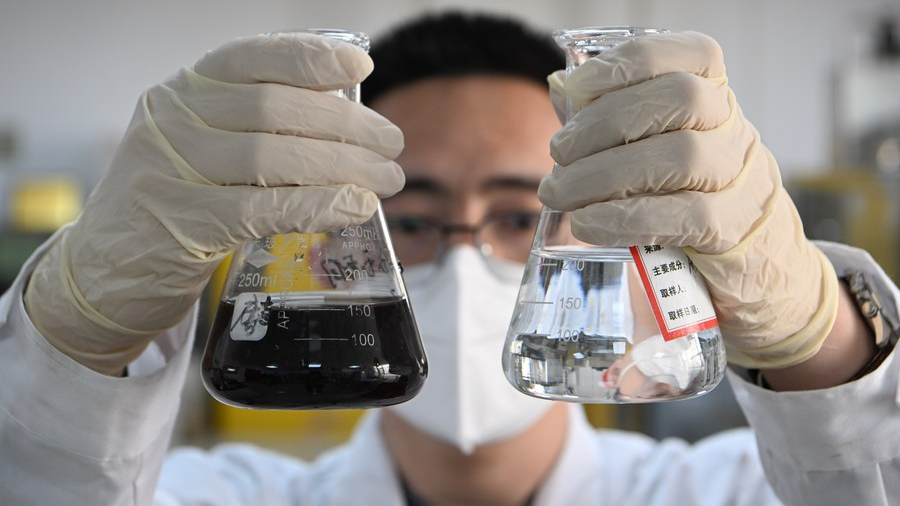
A researcher displays industrial wastewater and processed recycled water at the National Research Center of Industrial Water Treatment Engineering and Technology in north China's Tianjin Municipality, March 22, 2023. /Xinhua
A researcher displays industrial wastewater and processed recycled water at the National Research Center of Industrial Water Treatment Engineering and Technology in north China's Tianjin Municipality, March 22, 2023. /Xinhua
China's consumption of unconventional water resources expanded notably in 2022 amid the country's efforts to guarantee water security.
Unconventional water resources, such as recycled water, rainwater and desalinated seawater, are considered important supplements to surface water, underground water and tap water, as well as options for the sustainable provision of water.
Feeding around 20 percent of the world's population with only 6 percent of the world's fresh water, China has released a string of initiatives to facilitate the use of unconventional water resources.
The country's total annual consumption of unconventional water resources reached 17.58 billion cubic meters in 2022, 3.75 billion cubic meters more than in 2021, accounting for 2.9 percent of the total water supply, according to a report released recently by the Ministry of Water Resources.
The figure was 2.9 times higher than that of 2012 and 37 percent higher than in 2020, the report notes.
According to a guideline unveiled in July, China's total annual consumption of unconventional water resources is expected to exceed 17 billion cubic meters by 2025.
The ministry said it would take further steps to promote the exploration and utilization of unconventional water resources, and carry out pilot schemes for the distribution of such water to leverage the role of these resources in overcoming water scarcity while preventing and controlling water pollution.
(With input from Xinhua)